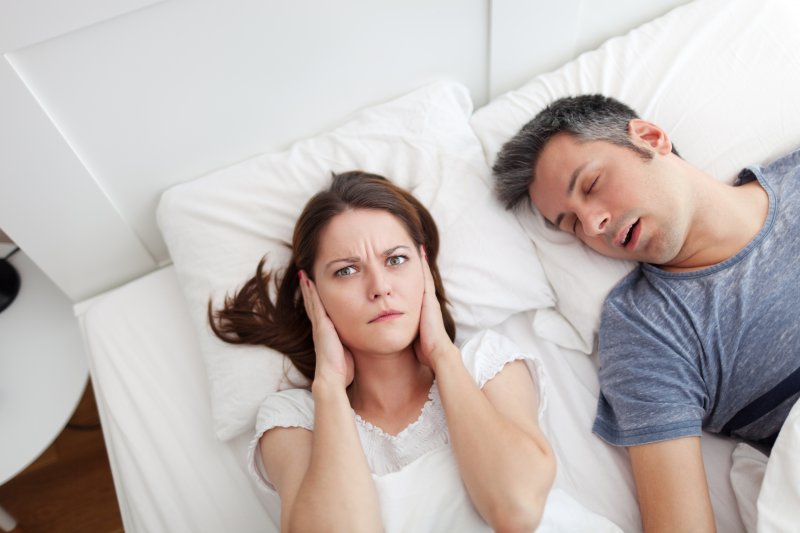
Have you been told you snore loudly at night? If so, you may think this is just a harmless annoyance for the person you’re living with, but it could be a sign that you’re suffering from sleep apnea. There are some changes you can make in your life, though, that could possibly remedy your snoring. Read on to learn about 7 types of snoring treatment in State College to try out, and also discover how a local sleep dentist can be of help if these methods aren’t effective.
What is Sleep Apnea?
The term ‘sleep apnea’ refers to frequent lapses in breathing during a sleep cycle that causes you to awake repeatedly throughout the night. As a result, you’re left deprived of the normal benefits that sleep has to offer.
One of the usual signs of sleep apnea is loud snoring, but it’s not always a definite indicator. Thus, you can start by taking steps to reduce the snoring, and if they aren’t effective, a local sleep dentist can provide a solution.
#1 – Sleep on Your Side
One of the contributors to snoring is the muscles in the throat collapsing, which can cause vibrations as air attempts to pass through. The result can be loud snoring.
While it may be comfortable to lie on your back while sleeping, this can contribute to the problem. As a potential solution, try resting on your side instead.
#2 – Start a Weight Loss Program
Another possible reason for loud snoring is weight gain. This can result in increased neck girth and a restricted airway. A simple remedy is to adopt healthier lifestyle practices like eliminating processed foods and starting a new exercise routine.
#3 – Limit Alcohol Consumption
Consuming alcohol four to five hours before retiring for bed has been found to increase instances of snoring because it can encourage the throat muscles to relax more than normal while you sleep. So to aide in preventing loud snoring, be more conservative about your alcohol intake.
#4 – Get Proper Rest
While this may seem like a “no-brainer,” getting the proper amount of sleep is critical for your overall health and for the prevention of snoring. One way to go about this is to power off any electrical devices at least an hour before retiring for bed.
#5 – Open the Nasal Passages
If you tend to have nasal congestion while sleeping, it could be a contributor to nightly snoring. One possible remedy is to take a hot shower before retiring for bed and to rinse your nose with a salt-water solution.
#6 – Change Your Pillows
Another possible solution for snoring is to change your pillows. That’s because your current ones could be full of dust allergens that may be contributing to your woes.
#7 – Drink More Water
Because the human body is mostly composed of water, it is of the utmost importance to stay properly hydrated in order for the body to function correctly. As a general rule of thumb, you should drink at least half your weight in ounces each day. For example, a 200-pound person would need to drink 100 ounces (five to six standard-sized bottles of water).
If you implement these corrective measures and your snoring doesn’t get any better, and you notice you feel lethargic throughout the day, then you should contact your local dentist to be tested for sleep apnea in State College. While visiting, you can also learn about the option of treating the condition with an oral appliance.
With the expert attention and care you’ll receive, you can soon enjoy a quiet and rejuvenating night of sleep!
About the Author
Dr. Donald Marks is a graduate of the University of Pittsburgh School of Dental Medicine, and he has gone on to provide the best in dental care for the past three decades. He specializes in treating sleep apnea at State College Dental Sleep Medicine, and he can be reached for more information through his website.
